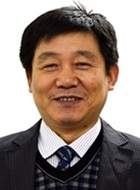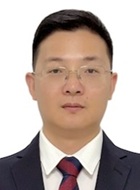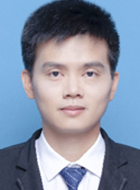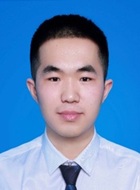Professor

Qian Lijun is a professor and PhD supervisor at the School of Automobile and Traffic Engineering, Hefei University of Technology, with long-term dedication to teaching and research in the field of vehicle engineering. As the head of the Vehicle Engineering discipline, he has conducted in-depth research in areas such as modern design theory and methods for vehicles, electric vehicle technology, vehicle safety technology, and automotive reliability technology.

Xianxu Bai received his Ph.D. degree in Instrument Science and Technology from Chongqing University, Chongqing, China, in 2013. He was a Joint Ph.D. student of Chongqing University and University of Maryland, College Park. Dr. Bai is now a Professor with Department of Vehicle Engineering, Hefei University of Technology, Hefei, China. He founded the Laboratory for Adaptive Structures and Intelligent Systems (LASIS, www.lasiser.com) in 2016. Dr. Bai has authored over 70 journal articles and over 80 conference articles with 20 invited talks.
He is an inventor on over 70 granted Chinese and PCT US Patents. Dr. Bai was the winner or recipient of over 10 Best Paper/Cover Paper Awards. His research interests are focused in two areas: (i) Design, optimization, dynamics, and control of smart structures and pseudo-active actuators, for vibration and shock mitigation, and especially for the specific applications of intelligent/automated vehicles; (ii) evaluation of the new mechatronics-based vehicle dynamics and control of intelligent/automated vehicles, especially on Safety of Functionality and SOTIF (Safety of The Intended Functionality).
Currently, Dr. Bai serves as an Associate Editor of the Journal of Intelligent Material Systems and Structures and SAE International Journal of Connected and Automated Vehicles. He is a Fellow of ASME (S’09, M’12, F’23).
Associate Professor

Zhu Anding, male, Ph.D., is an associate professor and master's supervisor in the Department of Vehicle Engineering, School of Automotive and Transportation Engineering, Hefei University of Technology. He graduated with a bachelor's degree from Southwest Jiaotong University in 1995, obtained a master's degree from Hefei University of Technology in 2001, and earned a Ph.D. from the University of Science and Technology of China in 2005. Since then, he has been employed at Hefei University of Technology. With long-term dedication to teaching in the vehicle engineering discipline, he primarily instructs courses such as Automotive Theory, Automotive Structure, Automotive Vibration and Noise Control, and Professional English. His research focuses on areas including vehicle system dynamics and control, vehicle reliability, vehicle ride comfort, and handling stability. He has presided over multiple enterprise horizontal research projects, participated in national and provincial/ministerial-level scientific research initiatives, published numerous academic papers, and edited 1 textbook. His research achievements span vehicle structural optimization and fatigue analysis, with representative papers published in journals such as Automotive Engineeringand China Mechanical Engineering.

Weihan Li received his Ph.D. degree in vehicle engineering from Hefei University of Technology, Hefei, China, in 2016.
He is currently a researcher with the Department of Vehicle Engineering, Hefei University of Technology, Hefei, China. From September 2012 to August 2014, he was a joint Ph.D. student funded by the China Scholarship Council with the GATE Center for Electric Drive Transportation, Department of Electrical and Computer Engineering, University of Michigan, Dearborn, MI, USA, where he was involved in the modeling and design of wireless chargers for electric vehicles (EVs)/plug-in hybrid electric vehicles (PHEVs). His research interests are focused in two areas. (i) New energy vehicle technology, including wireless power transfer, EV/PHEV systems, renewable energy, and (ii) Intelligent chassis of vehicle.
Lecturer

Dr. Di Wu received his Ph.D. degree in vehicle engineering from Hefei University of Technology, Hefei, China, in 2013.
He is currently a lecturer in the Department of Intelligent Vehicle Engineering, Hefei University of Technology, Hefei, China. From September 2010 to December 2011, he was a joint Ph.D. student of Ohio State University funded by the China Scholarship Council. His research interests are focused on two areas. (i) New energy vehicle technology, including EV/PHEV systems, renewable energy, and (ii) Intelligent Vehicle Decision-Making and Control Technology.

Jin Chen received his Ph. D. degree in Control Theory and Control Engineering from Chongqing University in 2021. He is currently a young scholar in School of Automobile and Transportation Engineering, Hefei University of Technology, Hefei, China. His research focuses on autonomous driving, intelligent transportation systems, human vehicle co-piloting, intelligent control and driving behavior modeling.

Jie Li received the B.S. degree in mechanical engineering from Anhui University, Hefei, China, in 2017, the M.S. in automotive engineering from Chongqing University, Chongqing, China, in 2020, and the Ph.D. degree in mechanical engineering from Shanghai Jiao Tong University, Shanghai, China, in 2024.
He is currently a Lecturer with School of Automotive and Transportation Engineering, Hefei University of Technology, Hefei, China. His research interests include intelligent eco-driving control for automated and connected vehicles and energy management strategy for hybrid electric vehicles.

谈东奎,男,工学博士,讲师,硕士生导师。主要研究方向为车辆动力学与控制、智能网联汽车。
主持或参与安徽省自然科学基金、中央高校基础科研校立项目、国家重点研发计划子任务、安徽省科技重大专项等10余项纵/横向课题,在《IEEE Transactions on Vehicular Technology》、《IEEE Intelligent Transportation Systems Magazine》、《Control Engineering Practice》、《机械工程学报》、《中国公路学报》、《汽车工程》等期刊上发表学术论文30余篇。
担任IEEE TVT、IEEE TITS、CEP、《机械工程学报》、《汽车工程》等业内高水平期刊审稿人。获发明专利授权5项,参与编写出版学术专著2部(《智能车辆主动安全与控制技术》、《智能网联汽车环境感知技术》)。
